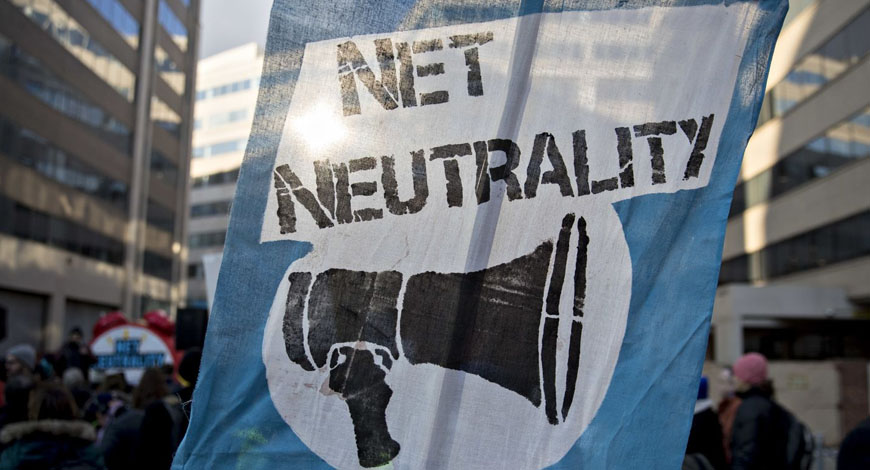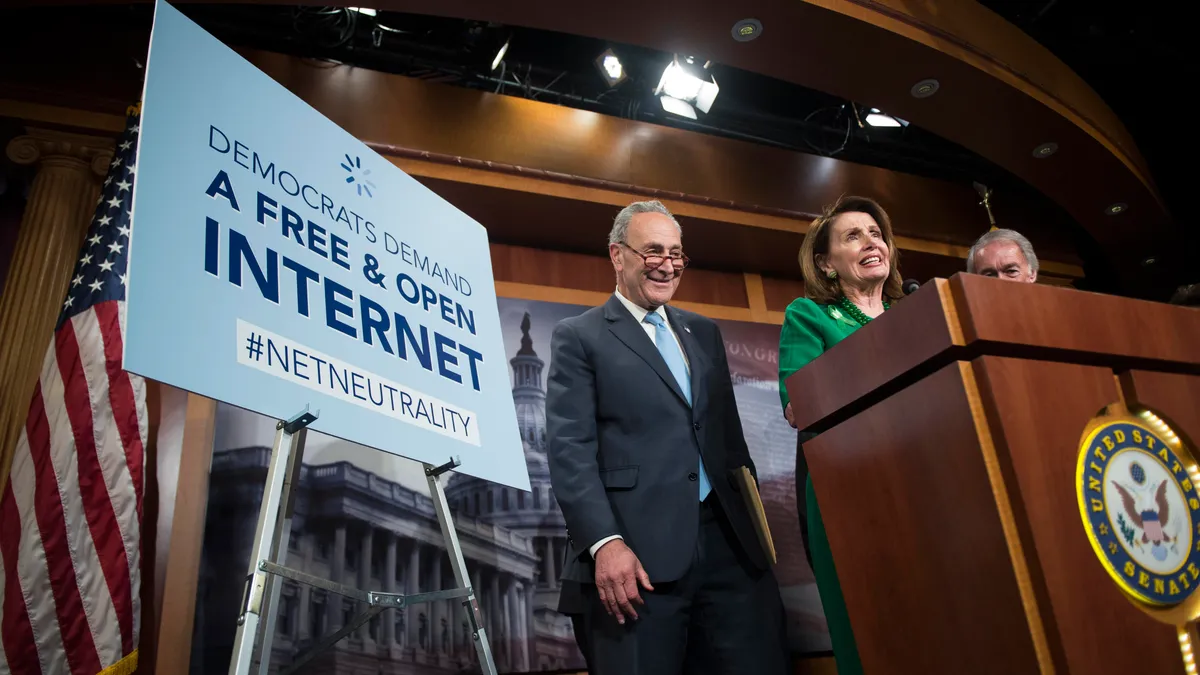The Federal Communications Commission’s (FCC) effort to reinstate net neutrality rules has been temporarily blocked by a U.S. appeals court, signaling a likely victory for broadband providers in their legal challenge.
This court decision follows an April vote by the FCC, which was divided along party lines, to reimpose regulatory oversight of broadband internet and restore the open internet rules that were originally put in place in 2015 but subsequently repealed during Donald Trump’s administration.
The Sixth Circuit U.S. Court of Appeals had previously delayed the implementation of these rules and on Thursday extended this block, scheduling oral arguments for late October or early November. This move represents a significant setback to President Joe Biden’s efforts to reinstate net neutrality.

The court cited the need for clear congressional authorization for such major regulatory actions, suggesting that the FCC’s rule reinstatement oversteps its authority without explicit legislative backing.
Net neutrality rules are designed to ensure that internet service providers (ISPs) treat all data on the internet equally. These rules prevent ISPs from blocking or slowing down access to certain websites or content and from engaging in paid prioritization, where they might favor certain content or services for additional fees.
Additionally, the rules aim to provide the FCC with more robust tools to address issues with foreign telecom companies and to monitor internet service outages more effectively.
Reinstating net neutrality has been a key priority for President Biden, who encouraged the FCC to revisit the 2015 rules through a July 2021 executive order. The Obama-era regulations were aimed at maintaining an open internet, but the Trump administration had argued that these rules were overly restrictive, stifling innovation and leading to decreased investments by ISPs—a claim that has been contested by Democrats.
FCC Chair Jessica Rosenworcel expressed disappointment with the court’s decision but remained committed to fighting for net neutrality, emphasizing the public’s demand for an internet that is fast, open, and fair. The legal battle over these regulations continues, highlighting the ongoing debate over the balance between regulatory oversight and market freedom in the internet landscape.







Leave a Reply